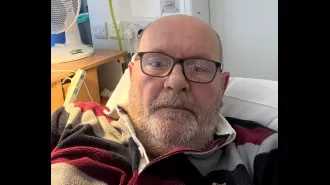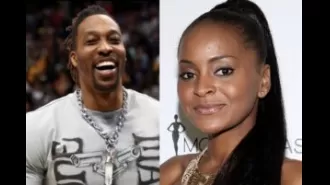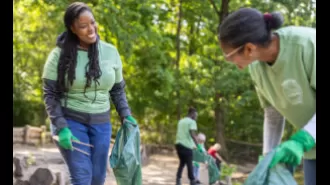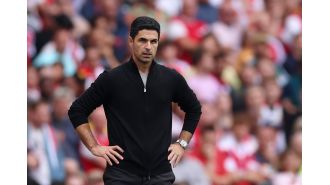As a gay person, I never expected to have anyone want to compete against me in wrestling, but now I've become a three-time champion.
"I always knew I wanted to wrestle, no matter what."
December 27th 2024.
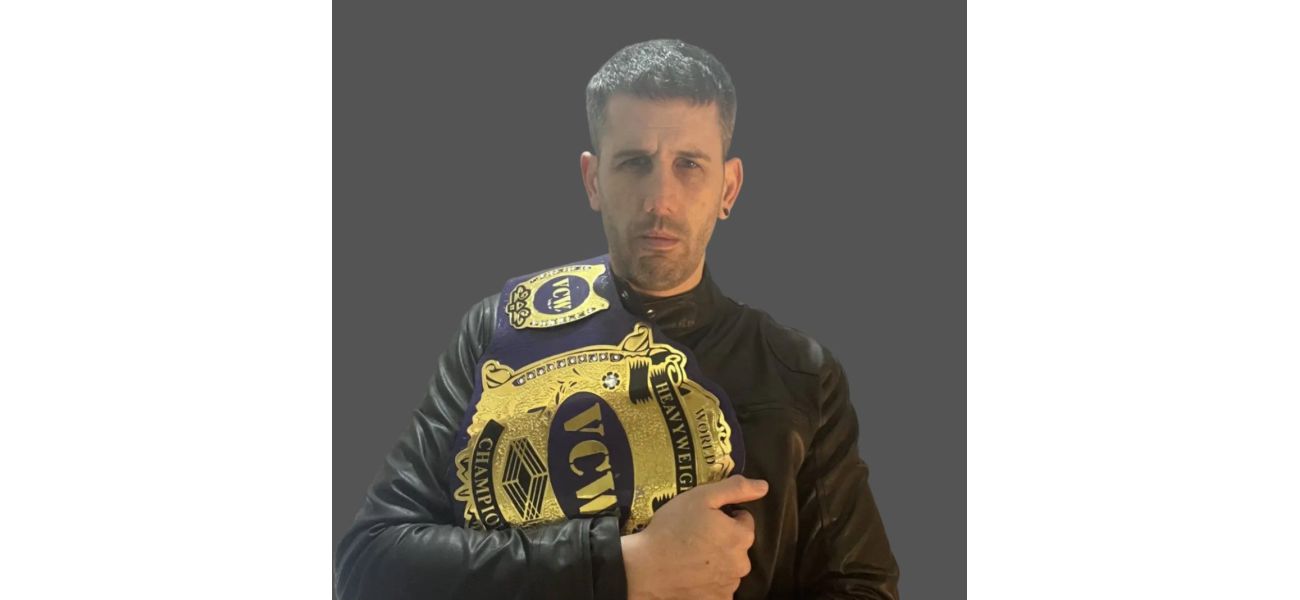
If you ask Jensen Theory about himself, he'll be the first to tell you exactly who he is. His Instagram bio reads "Narcissist Prince", and he's not shy about it. But let's make one thing clear - those are not names that his exes have given him. They're actually terms used in the wrestling world to describe the bad guys, or "heels". "Absolute Ego" is just another way of saying that he's cocky and arrogant, not unlike one of the biggest stars in World Wrestling Entertainment, Austin Theory. And funnily enough, they share the same last name.
But outside of the ring, Jensen is far from the character he portrays. In fact, his real name is Andrew Frewing-House and he's a 40-year-old indie wrestler from Southampton. He's also the owner of a theatrical ghost tour company in Portsmouth and a radio presenter. Oh, and he's gay.
Jensen, or Andrew, as he's known to his friends, never thought he would be a wrestler. He grew up watching WWE on TV and became enamored with the performers and their high-flying moves. But as a gay man, he had his doubts about whether he would be accepted in the world of wrestling. So when he finally decided to pursue his dream, he kept his sexuality a secret and avoided personal questions.
Despite the fact that there are nearly 500 openly LGBTQ+ professional wrestlers, queer individuals still face a lot of discrimination in the sporting world. This was something that Andrew experienced firsthand. But he didn't let it stop him from joining Quality Wrestling Academy in Havant, where he trained to become a wrestler.
However, being a gay wrestler wasn't easy for Andrew. In the wrestling world, being gay was often seen as a joke or something to be ridiculed. And even though he mostly faced internal struggles, Andrew couldn't help but feel like an outsider. It wasn't until his training academy posted in support of pride on social media that he decided to come out publicly. The response he received was overwhelmingly positive and he even made Outsports' Queer Wrestling Index 200, a ranking of the best LGBTQ+ pro wrestlers.
The wrestling world has come a long way since Andrew was a kid. Promotions like WWE and All Elite Wrestling now have a diverse roster of LGBTQ+ athletes, including Fred Rosser, Sonya Deville, Anthony Bowens, and Nyla Rose, who is openly transgender. However, there is still a lot of work to be done in creating a safe and inclusive space for queer individuals in wrestling.
Heather Bandenburg, co-founder of the London-based queer wrestling promotion Fist Club, explains that wrestling is a sport that can be both welcoming and toxic. As a queer woman, she has seen firsthand how the sport can bring people together, but also perpetuate toxic masculinity. That's why she created Fist Club, as a safe space for queer performers to train and create their own personas without fear of prejudice.
And as more and more wrestlers come out, it's inspiring a new generation of LGBTQ+ wrestlers to do the same. Andrew's own experience of coming out and being accepted in the wrestling world has shown him that anyone can be a wrestler. He never could have imagined the positive response he would receive and is proud to be a role model for others in the LGBTQ+ community. After all, wrestling is for anyone, regardless of their sexual orientation or gender identity.
But outside of the ring, Jensen is far from the character he portrays. In fact, his real name is Andrew Frewing-House and he's a 40-year-old indie wrestler from Southampton. He's also the owner of a theatrical ghost tour company in Portsmouth and a radio presenter. Oh, and he's gay.
Jensen, or Andrew, as he's known to his friends, never thought he would be a wrestler. He grew up watching WWE on TV and became enamored with the performers and their high-flying moves. But as a gay man, he had his doubts about whether he would be accepted in the world of wrestling. So when he finally decided to pursue his dream, he kept his sexuality a secret and avoided personal questions.
Despite the fact that there are nearly 500 openly LGBTQ+ professional wrestlers, queer individuals still face a lot of discrimination in the sporting world. This was something that Andrew experienced firsthand. But he didn't let it stop him from joining Quality Wrestling Academy in Havant, where he trained to become a wrestler.
However, being a gay wrestler wasn't easy for Andrew. In the wrestling world, being gay was often seen as a joke or something to be ridiculed. And even though he mostly faced internal struggles, Andrew couldn't help but feel like an outsider. It wasn't until his training academy posted in support of pride on social media that he decided to come out publicly. The response he received was overwhelmingly positive and he even made Outsports' Queer Wrestling Index 200, a ranking of the best LGBTQ+ pro wrestlers.
The wrestling world has come a long way since Andrew was a kid. Promotions like WWE and All Elite Wrestling now have a diverse roster of LGBTQ+ athletes, including Fred Rosser, Sonya Deville, Anthony Bowens, and Nyla Rose, who is openly transgender. However, there is still a lot of work to be done in creating a safe and inclusive space for queer individuals in wrestling.
Heather Bandenburg, co-founder of the London-based queer wrestling promotion Fist Club, explains that wrestling is a sport that can be both welcoming and toxic. As a queer woman, she has seen firsthand how the sport can bring people together, but also perpetuate toxic masculinity. That's why she created Fist Club, as a safe space for queer performers to train and create their own personas without fear of prejudice.
And as more and more wrestlers come out, it's inspiring a new generation of LGBTQ+ wrestlers to do the same. Andrew's own experience of coming out and being accepted in the wrestling world has shown him that anyone can be a wrestler. He never could have imagined the positive response he would receive and is proud to be a role model for others in the LGBTQ+ community. After all, wrestling is for anyone, regardless of their sexual orientation or gender identity.
[This article has been trending online recently and has been generated with AI. Your feed is customized.]
[Generative AI is experimental.]
0
0
Submit Comment

